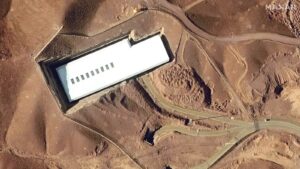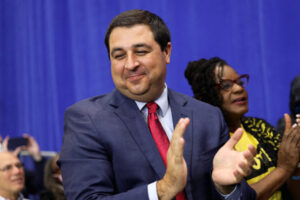
By early spring, Paramount Global found itself embroiled in a high-stakes legal battle with former President Donald Trump. The dispute centered around a CBS News “60 Minutes” interview with Vice President Kamala Harris, which Trump claimed was manipulated to favor her election chances. Paramount faced mounting pressure to settle, as the lawsuit threatened to derail its $8-billion sale to Skydance Media, led by David Ellison.
The situation escalated on May 4 when CBS aired a “60 Minutes” segment critical of Trump’s legal tactics, prompting threats of an additional defamation lawsuit from Trump. This development added urgency to the negotiations, eventually culminating in a $16-million settlement. Paramount agreed to cover Trump’s legal fees, with the remainder allocated to his future presidential library.
Inside the Negotiations
The settlement was the result of complex negotiations involving several high-profile figures, including Shari Redstone, Larry Ellison, and Hollywood agent Ari Emanuel. Paramount managed to withstand Trump’s initial demand for a $100-million payout and refused to apologize for CBS’ reporting, maintaining its journalistic integrity.
According to C. Kerry Fields, a business law professor at USC, “This settlement allows Paramount to focus on its prospective sale, and CBS can maintain its principles. But principle has its price, and there certainly was one set here.”
The Stakes for Paramount
Paramount’s sale to Skydance was seen as crucial for its survival. The company needed to finalize the settlement before its annual shareholder meeting, where new board members were set to join. The sale also required FCC approval to transfer CBS TV station licenses, a process complicated by the lawsuit.
“This [settlement] was all about survival — it was that dark,” Fields noted. “Paramount has to execute the sale to Skydance in order to survive.”
Initially, the sale seemed secure, with Larry Ellison’s close ties to Trump and interest in acquiring TikTok. However, the lawsuit and subsequent FCC inquiry into CBS’ editing practices posed significant hurdles.
The Legal Battle’s Origins
The conflict began in the fall when “60 Minutes” invited Trump and Harris for pre-election interviews. Trump backed out, but CBS proceeded with Harris’ interview. The edits made to her responses sparked allegations of bias from Trump and his supporters, leading to the lawsuit filed in Texas.
Despite First Amendment experts dismissing the case as meritless, the lawsuit persisted, with CBS refusing to release the full Harris interview transcript. This stance highlighted tensions between Paramount executives and Skydance’s incoming leadership.
Efforts to Mediate
As the legal battle dragged on, mediation talks began in late April. The situation was further complicated by an internal shake-up at CBS, with the departure of News President Wendy McMahon and “60 Minutes” producer Bill Owens.
Pressure mounted from various quarters, including U.S. senators warning Paramount’s board of potential bribery charges if they settled to secure FCC approval. Meanwhile, Emanuel, a key figure in the entertainment industry, helped facilitate discussions between Ellison and Trump.
The Settlement’s Implications
The agreement reached just hours before Paramount’s board transition included a provision for “60 Minutes” to release transcripts of interviews with presidential candidates post-airing, subject to legal or national security redactions. This aspect of the settlement drew criticism from First Amendment advocates and Trump’s political adversaries.
“Paramount’s move to settle a bogus lawsuit with President Trump over a ‘60 Minutes’ report he did not like is an extremely dangerous precedent,” said Senator Bernie Sanders.
While the settlement resolved the immediate crisis, it underscored the vulnerabilities and internal divisions within Paramount. The resolution allows the company to proceed with its sale to Skydance, but the broader implications for media freedom and corporate governance remain contentious.
As the dust settles, industry observers will be watching closely to see how Paramount navigates its future under new ownership and whether the settlement sets a precedent for handling similar disputes in the media landscape.




